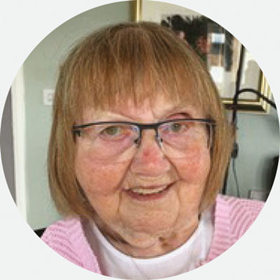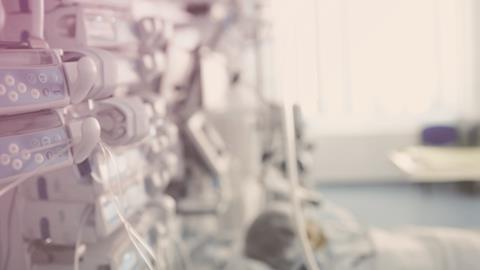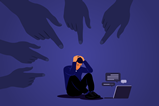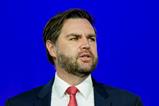As the campaign to legalise assisted dying ramps up, Heather Tomlinson explains why Christians need to reassess their assumptions about individualism and personal autonomy
To many people today, euthanasia seems rational. Shouldn’t someone who is facing a cruel death have the right to control the end of their own life and avoid unnecessary suffering, we ask? Dignity in Dying – once called the Voluntary Euthanasia Legalisation Society – regularly publishes stories of people experiencing great suffering who say that they want to be able to leave this world on their own terms – and they seem to be persuading the nation.
A recent YouGov survey showed that 73 per cent of the general population think doctors should be able to help someone with terminal illness end their life, while 50 per cent believe the same applies to people suffering from a painful but incurable illness, even if it isn’t terminal.
But what about the opinions of those in our churches? Some highprofile, conservative Christians, such as Lord George Carey, former Archbishop of Canterbury, have been persuaded. Writing in the Daily Mail he said: “In strictly observing the sanctity of life, the Church could now actually be sanctioning anguish and pain, the very opposite of the Christian message of hope.”
This year, the UK is facing two renewed efforts to change the law in both Westminster and the Scottish Parliaments, and pro-life campaigners think it is the most serious threat yet. Baroness Meacher introduced a bill to the House of Lords earlier in the year to allow doctors to assist with suicide for people with less than six months to live. It is likely to be debated in the Commons this autumn. A similar law will likely be introduced in the Scottish Parliament too.
DYING WELL
The proposed first steps to legalisation in this country appear small and will be limited to people who have a terminal illness. On the face of it, this ‘assisted dying’ seems the most reasonable of all the different kinds of assisted suicide and euthanasia. Yet this situation actually has one of the strongest arguments against it: not least that doctors’ predictions of the length of life in terminal illness are notoriously unreliable, and that supposedly painless means of assisting suicide are not reliably so.
Christian love is a way of saying to another person, even in the face of pain, suffering and disability, ‘It is good that you are alive’
Most importantly, there need not – usually – be intense suffering at the end of life. Thanks to the Christian doctor Dame Cicely Saunders, who founded the modern hospice movement in the UK, the care of the dying today is very advanced. Hospices are experts in pain management, as well as offering other kinds of support for the spiritual, emotional and relational issues that the dying may face. “She discovered that if anxiety, loneliness and spiritual pain were recognised and tackled, then very often the physical pain was much easier to control and alleviate,” writes Dr John Wyatt in Right to Die?: Euthanasia, assisted suicide and end-of-life care (IVP). Good palliative care, he says, aims to help people “live before they die”.
By deliberately hastening a death, some of the most meaningful experiences of a person’s life can be taken away. Rev George Pitcher wrote movingly of his own experience with his dying mother in A Time to Live: The case against euthanasia and assisted suicide (Monarch Books). When he saw his mother’s pain in the last stages of life, he begged a nurse to hasten her end; she refused. “That evening, the morphine faded and Mum regained consciousness for a few minutes,” he wrote. “We could talk to her, hold her, say goodbye, tell her we loved her…I wouldn’t have missed that last exchange for the world…I shiver when I think of what I could have lost, had a medical professional not saved me from myself.”
The finality and intensity of a person’s last days can be extremely important to them, as well as their family and community. “Dying well can be an opportunity for healing from the inside,” writes Wyatt. “Here may be a never-to-be-repeated chance for forgiveness and starting again… in those last days and weeks the relational pain of the dying person can often be healed in a remarkable and life-transforming manner.”
Defining terms
There are a number of terms that are confusing and often used interchangeably in this debate.
Assisted suicide: when any person is helped to kill themselves, for example by giving them lethal drugs that they can take themselves.
Euthanasia: any act where a person is deliberately killed to ‘reduce suffering’ – this can be voluntary, where the person has chosen it, or not. The intention must be to kill – drugs given to reduce pain may hasten the end of life, but the intention is to relieve suffering, not help the person to die.
Assisted dying: a term used by pro-euthanasia campaigners for when a terminally ill person is helped to die before natural death would have occurred.
SLIPPERY SLOPES
Small changes to the law, such as the Meacher bill, can seem reasonable and compassionate but their consequences in other countries have been incredibly sinister. It has led to wider application, such as the legalisation of killing people with mental health problems, those just ‘tired of life’, the elderly, people who are paralysed and disabled, even young people suffering from trauma. In Holland, 29-year-old Aurelia Brouwers was allowed to kill herself due to her experience suffering from borderline personality disorder, which includes self-harm as a typical symptom.
Despite public support for assisted suicide in the UK, we are becoming increasingly concerned about mental health and there are many campaigns to reduce the rates of suicide. But don’t these trends contradict each other? Jamie Gillies, of Christian charity CARE thinks so, writing in The Press and Journal: “Proponents of assisted dying would say the two issues are separate, but are they? With both suicide and assisted suicide, we are talking about vulnerable people who are experiencing pain and distress – either mental, physical or emotional – and seeking to bring about an end to their lives. The assumption in both scenarios is that some situations are utterly hopeless and that death is the only solution.
“As a society, we should reject this impulse. People do face desperately hard situations in life, whether it is acute mental anguish, terminal illness or non-terminal conditions that take away a person’s faculties. But there is always hope.”
The wounded man and the Samaritan are inseparable. It was the helplessness of one that brought out the best in the other
Those who are dependent on others for care may also feel pressure, consciously or unconsciously, to end their lives so they are no longer a burden on others. They may want to release family members – and even taxpayers – from their needs; good quality care is very expensive. This is why some disability rights groups, such as Not Dead Yet, oppose euthanasia. While it could be argued that an individual has the right to end their own life, allowing them this freedom would mean some vulnerable people may feel that they should do so, or could be pressured into doing so. This serious risk of harm to the wider community should, arguably, trump any individual’s right to choose.
Once the principle that a dying person should be able to choose when to die is accepted, extending that choice to other forms of suffering are not far away. Consider the anguish of someone who is ‘locked-in’ their own body and can only communicate through eye movements, such as Tony Nicklinson, who vigorously campaigned for the right to end his life. Or the older person who can no longer take care of themselves and faces the long slow progression of dementia. Such kinds of suffering could be argued to be worse than that of someone who is terminally ill, because there is no certainty of how long it will last, and it cannot be alleviated by morphine or the expert care of a hospice.
But what is the Christian answer? Can we offer a better option than just hastening death?
MEANING IN DEPENDENCY
Our first answer to such a question is the hope and meaning to be found in our faith. Enid Henke wrote a much-quoted paper in 1972 on her experience of progressive illness, including paralysis and loss of speech. On wondering why she was alive, she wrote: “I was then sure that my present purpose is simply to receive other people’s prayers and kindness and to link together all those who are lovingly concerned about me.”
We enter this world totally dependent on other people, and often we leave in a similar way
Her friend said to her: “It must be hard to be the wounded Jew when, by nature, you would rather be the Good Samaritan.” Enid responded: “It is hard. It would be unbearable were it not for my belief that the wounded man and the Samaritan are inseparable. It was the helplessness of one that brought out the best in the other.”
The Christian worldview has something for people who do not have faith, too. Though the modern world values independence, autonomy and control over our own lives, that is not the way that God designed it. We enter this world totally dependent on other people and, often, we leave in a similar way. Some people are highly dependent for their whole lives.
Before state hospitals and the welfare state, individuals knew and accepted that they were deeply dependent on family and the community around them for physical and financial support through hard times and, in turn, they expected to support others when needed. In much of the world, this is still how families and communities operate. Yet, in the West, this idea is frightening – even to many Christians – because we are so used to independence from each other.
‘We need to feel our lives are valued’

Ann Macfarlane is a disability equality consultant, a campaigner for the disability rights charity Not Dead Yet and an active member of her church.
I’m a full-time wheelchair user and have been since the age of four. I’m now in my 80s, and I’ve had a great life. I’ve got Christian friends around me; I’m in a fortunate position.
If euthanasia was legalised, disabled people would probably feel more pressure to end their lives. We need to feel our lives are valued.
I want people to understand how difficult life can be and how frightening it can be. I don’t want people to think: Oh well, why should they live? When you have someone in terrible pain, lying in urine and faeces, it’s no wonder they want to die. The services and the financial resources are either not there or not in sufficient quantity and quality to meet disabled and/or ill people’s needs. Disabled people can see themselves as a burden on their family. We need a strong team of people, with or without faith, who can help us. I personally have adequate hours of care – that has made my life better.
From my perspective, euthanasia doesn’t agree with the teachings of the Christian gospel. Jesus was a preserver of life. He would not want people to feel that they are a burden. The Gospels are there to show us the way to live.
The need for personal autonomy that drives so much of our modern Western world needs critical examination. “The life of Christ offers the model for fulfilment: ‘For the Son of Man came not to be served but to serve’” (Mark 10:45) writes Rev Pitcher. “Our human identity is wrapped up in, indeed entirely dependent upon, our relationships with other people, and in particular, those we love and serve and those who love and serve us.”
However, unless a dependent person feels deeply valued by those caring for them, and has a sense of meaning and purpose, it can be excruciating. “Apart from the causes associated with age and infirmity, nothing breaks down one’s emotional and mental capacity as much as a festering residue of uselessness and unwantedness,” says Mary Drahos, who has battled both cancer and multiple sclerosis, in The Healing Power of Hope (WestBow Press).
The kind of patient, selfless and painstaking care that a dependent person needs is not easy to provide in our fast-moving and materialistic culture, and even the most wellmeaning families can struggle to provide it. Paid carers can help, but often do not provide the person they care for with a deep sense of being valued. “Christian love is a way of saying to another person, even in the face of pain, suffering and disability, ‘It is good that you are alive’” says Wyatt. This is central to the Christian message and yet, with so few who believe it, it may not be heard or experienced enough in our increasingly narcissistic culture.
OUR ANSWER TO A WORLD THAT CALLS SO LOUDLY FOR EUTHANASIA HAS TO BE LOVE
Our answer to a suffering world that calls so loudly for euthanasia has to be love. That includes practical care for our neighbour in emotional or physical distress, and their families. It means time spent with the suffering, listening and treating people as if they are our own family, regardless of financial compensation.
To combat a culture of death, we need to live a culture of life. This includes demonstrating the meaning of service, dependency and love, and protecting the vulnerable from those who do not share our view that each and every life is equally valuable, no matter the physical or emotional challenges.
Anyone who is in emotional distress can call Premier Lifeline on 0300 111 0101. It is open daily from 9am to midnight






































